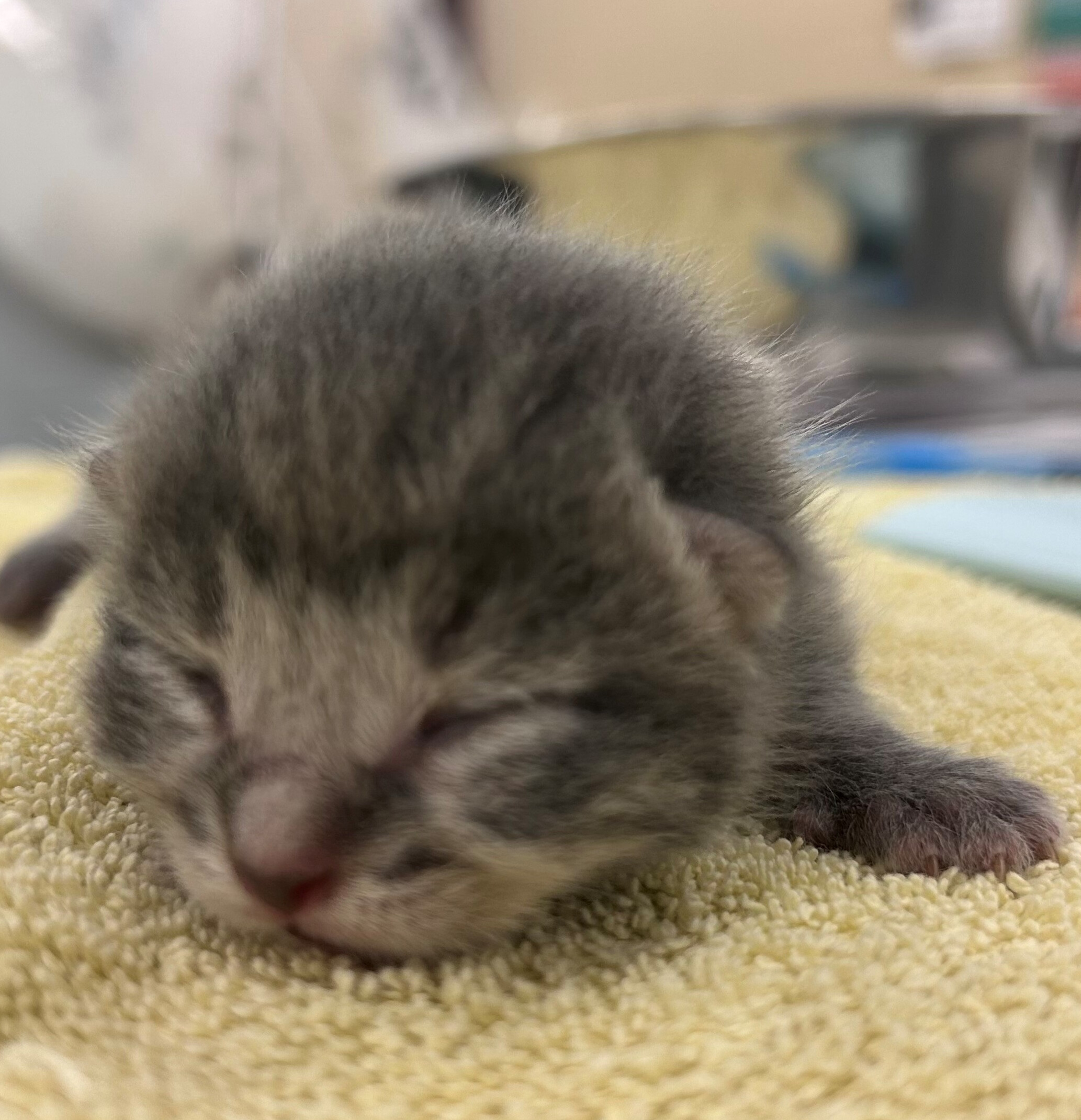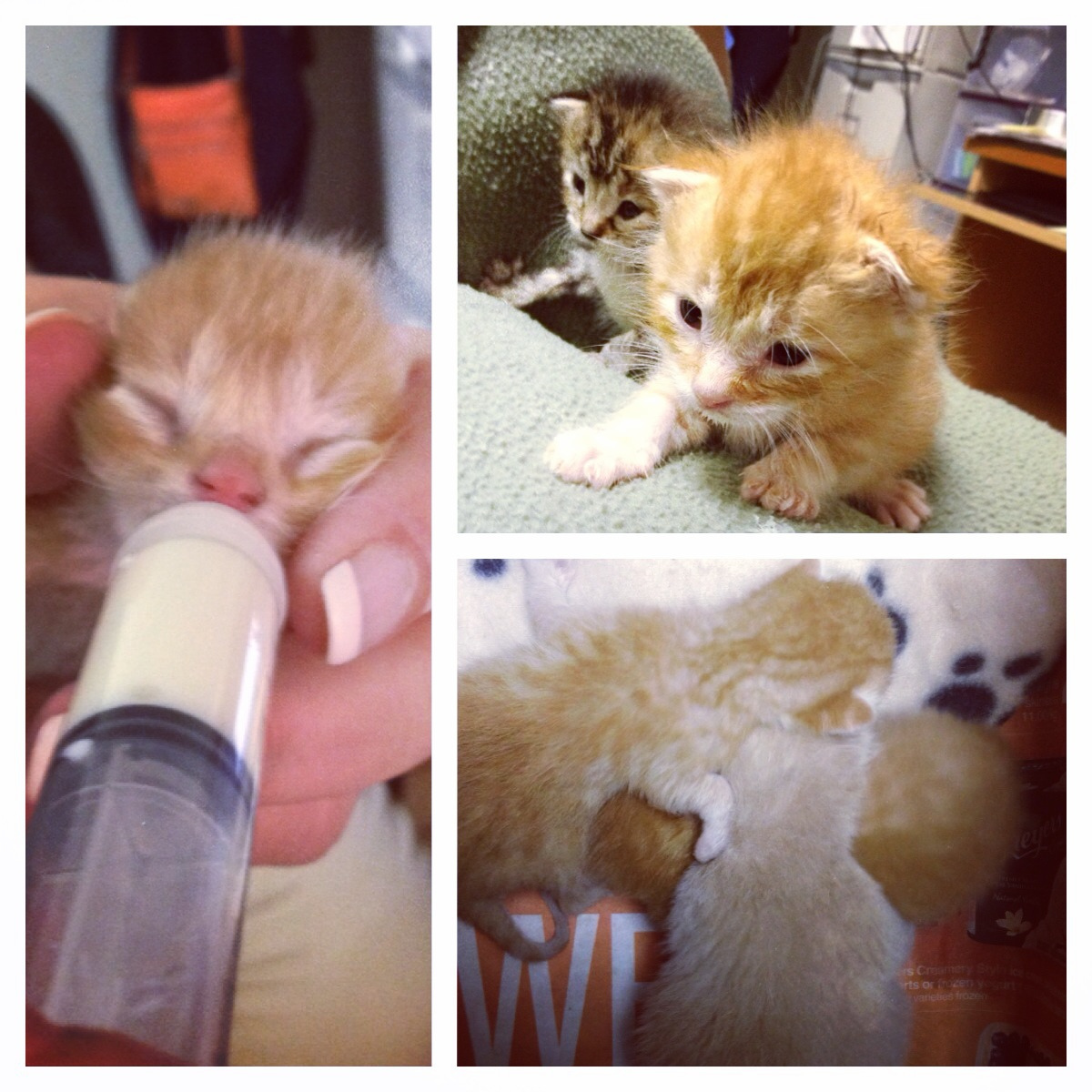When you imagine yourself as a foster volunteer for an animal shelter, what do you see? Fuzzball puppies and floofy kittens? Nursing an injured animal back to health? Teaching an old dog new tricks or convincing a grumpy cat to be less grumpy?
These are all valid and common experiences across the foster spectrum. What's less common and more distressing are the illnesses we can't treat or the unexpected veterinary emergencies. We train our fosters for these contingencies but no amount of preparation can alleviate the shock of losing an animal in your care.
This spring we took a transfer of cats from 'One Last Chance' rescue. As the name implies, this group of volunteers gathers cats from pounds or shelters with strict deadlines, in a final effort to save them. One of the cats we transferred in was a terrified, young Tabby; quite small for its reported age of 7 months. It was also listed as 'spayed'. Normally we would still shave the cat to look for a spay scar and confirm the alteration. This cat was so stressed, we decided to forgo the confirmation and get the cat into a home. A foster volunteer whose application had only just been approved, was contacted and agreed to take the cat. Unfortunately, after a few days, the cat began to show signs that she was in labour and birthed a stillborn kitten. The foster reached out to our coordinator and the cat was immediately returned to the shelter. An emergency 'C' section was done and another stillborn kitten was removed. The mom survived and is now doing well but the volunteer was devastated by the experience and has decided to step away from fostering for a while. Carlie, our foster coordinator and a veteran of more than 200 foster animals herself, understands the emotions inherent in these situations. 'After fostering for so long, I've experienced my share of heartbreaking losses,' she said. 'Sadly, it's a reality we can't always anticipate or prevent.'
Carlie then recalled a recent experience with a single kitten and a mom that was nursing five other kittens. The single kitten seemed to be bottle-feeding well, but without warning, started declining. Carlie tried to put the singleton with mom and the other litter. It worked for a day or two, but the kitten wasn't suckling properly so Carlie started bottle-feeding again. The five kittens with the mom also began to decline, displaying rapid, open mouth breathing; a sure sign of distress. Over the next week, despite heroic efforts by our veterinary staff, the singleton as well as three of the other kittens were humanely euthanized as a result of fading kitten syndrome. Even for our most experienced foster mom, this was traumatic. 'After losing one of the kittens, walking into their room became terrifying,' Carlie said. 'Every time I opened the door, my heart braced for the worst. I was scared I'd find another tiny life slipping away.'
Following such a disturbing experience, it would not have been surprising if Carlie wanted to take a break from fostering herself. Instead, she reaffirmed her commitment to foster other cats, specifically choosing those that are struggling, in order to spare our volunteers. 'If there's heartbreak ahead, I'd rather it be mine to carry than ask someone else to bear it. I do it to protect our fosters, but the truth is, we can't predict every loss, no matter how much we wish we could.'
I am regularly overwhelmed by our staff and their willingness to exceed all expectations. Carlie is the perfect example of this characteristic. Even though I knew the details, hearing it in Carlie's voice gave rise to sorrow, compassion and admiration all at once. When I approached her for what advice she had for volunteers that have similar foster encounters, her recommendations were intuitive and compassionate.
'No matter how many times it happens, it never gets easier,' she said. 'For me, when I lose an animal, I create something to remember them. We have a memorial wall in our cat room at home, filled with their photos and tiny paw prints, so they're never forgotten. We make sure every foster who experiences a loss receives a paw print and a card signed by the whole team. It's a small gesture, but one that says: you're not alone.'
They certainly are not alone, and neither are the animals because, in Carlie's words, 'They were loved, safe, and cared for'and we gave them the best life we could, even if it was far too short.'


